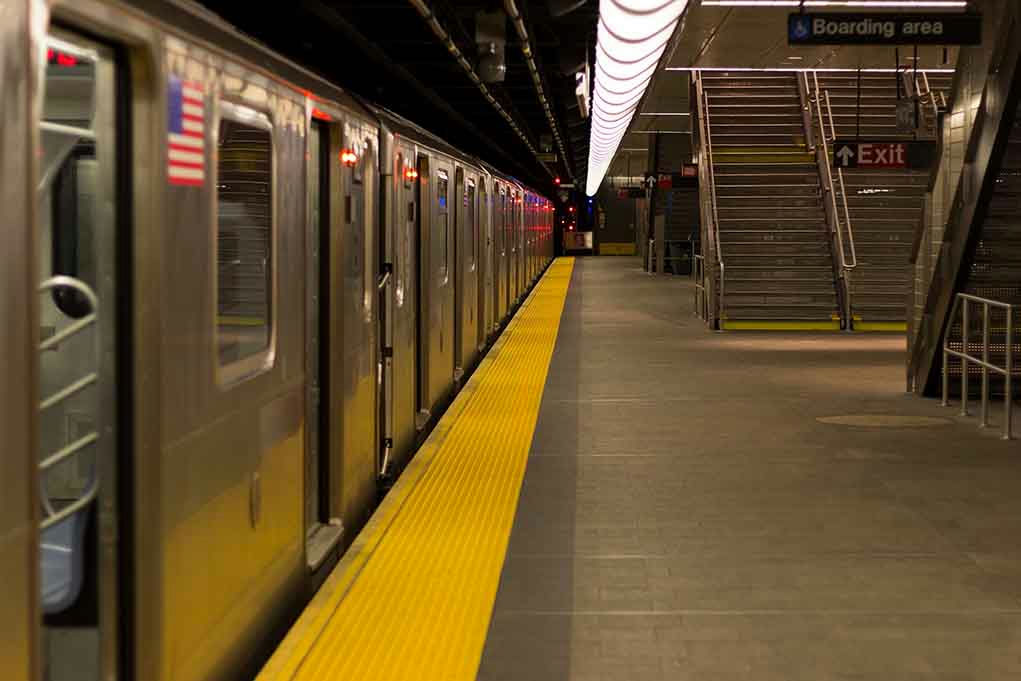A Ukrainian refugee’s brutal murder on a North Carolina train—caught on camera and allegedly committed by a repeat offender—has ignited national outrage over public safety failures and the consequences of soft-on-crime policies.
Repeat Offender Strikes: System Failures Exposed
On August 22, 2025, 23-year-old Ukrainian refugee Iryna Zarutska boarded a Charlotte light rail train after work, seeking the safety she hoped America would provide. Just four minutes later, she was brutally stabbed in the neck by Decarlos Brown Jr., a 34-year-old Charlotte resident with a history of violent crime and fourteen prior criminal cases. Surveillance video revealed the shocking reality—not only was the attack unprovoked and random, but nearby passengers failed to intervene, compounding the senselessness of Zarutska’s death.
Brown’s criminal past includes multiple arrests and a recent encounter with law enforcement as recently as January 2025, yet he remained free to roam the streets. Despite repeated opportunities to detain him, the system allowed Brown to remain at large, ultimately leading to this tragedy. Zarutska’s murder has become a rallying point for those demanding accountability, with many pointing to the dangers of leniency toward repeat offenders and the consequences of policies that prioritize offenders’ rights over public safety.
Justice Demanded: Federal Charges and Political Outcry
Following Brown’s arrest at the scene, authorities acted swiftly. By September 9, 2025, federal charges were announced, making Brown eligible for the death penalty due to the public impact and nature of the crime. The U.S. Attorney’s Office emphasized the importance of sending a clear message that attacks on public transit will not be tolerated. Attorney General Pamela Bondi and President Trump both publicly called for the maximum penalty, sharply criticizing years of “soft-on-crime” policies that, in their view, have eroded public safety and emboldened violent repeat offenders.
The case has drawn national attention, not only because of Zarutska’s status as a refugee who fled war-torn Ukraine for safety in the United States, but also because it highlights vulnerabilities in the justice system and public transportation security. Many Americans, especially those who value law and order, are demanding answers: Why was Brown still on the streets? Why did bystanders fail to act? And what will it take to restore safety and accountability?
Transit Safety, Bystander Apathy, and Community Impact
The Charlotte attack has placed a harsh spotlight on the safety of America’s public transit systems. Immediate steps have been taken to increase security on the city’s light rail, but public trust has already been shaken. Ridership has declined, and there is growing pressure on authorities to do more than offer reassurances. The chilling video evidence of bystanders failing to intervene has sparked conversations about personal responsibility, community vigilance, and the consequences of a society increasingly deterred by fear of legal consequences or social backlash for taking action.
Zarutska’s death has also had a profound impact on Charlotte’s Ukrainian community and her grieving family, who sought refuge in America to escape foreign conflict, only to face unimaginable loss. The tragedy resonates far beyond North Carolina, fueling debate nationwide over the handling of repeat offenders, mental illness interventions, and the need for tougher sentencing to deter future crimes.
Political and Legal Ramifications: The Call for Reform
This horrific crime has reignited calls for a return to common-sense public safety policies that prioritize the rights of law-abiding citizens over those of career criminals. President Trump and leading conservative voices argue that the failure to detain offenders like Brown represents a broader breakdown in the system—one caused by years of progressive criminal justice reforms that, they say, have prioritized compassion for offenders at the expense of community safety. As the prosecution moves forward, the national conversation is shifting: Americans are demanding real reforms that hold repeat offenders accountable and restore faith in the justice system.
Ukraine refugee’s final moments caught on camera before she was stabbed to death on US trainhttps://t.co/7UtkJ63qc5
— Sun5 (@55Sun5) September 10, 2025
While Brown is presumed innocent until proven guilty, the facts laid out by authorities and captured in clear video evidence have made this case a symbol of the urgent need for action. For many, Zarutska’s murder is a tragic reminder of what is at stake when political priorities shift away from law and order—and why the protection of innocent Americans must always come first.
Sources:
Man Accused of Killing Ukrainian Refugee on North Carolina Train Charged with Federal Crime
Charlotte Man Charged with Federal Crime in Fatal Attack on Iryna Zarutska on City’s Light Rail
Trump Demands Death Penalty for Decarlos Brown Jr., Charged with Murder of Iryna Zarutska
Charlotte Increases Security After Ukrainian Woman Killed on Train
Iryna Zarutska, Decarlos Brown Jr. North Carolina Federal Charges

